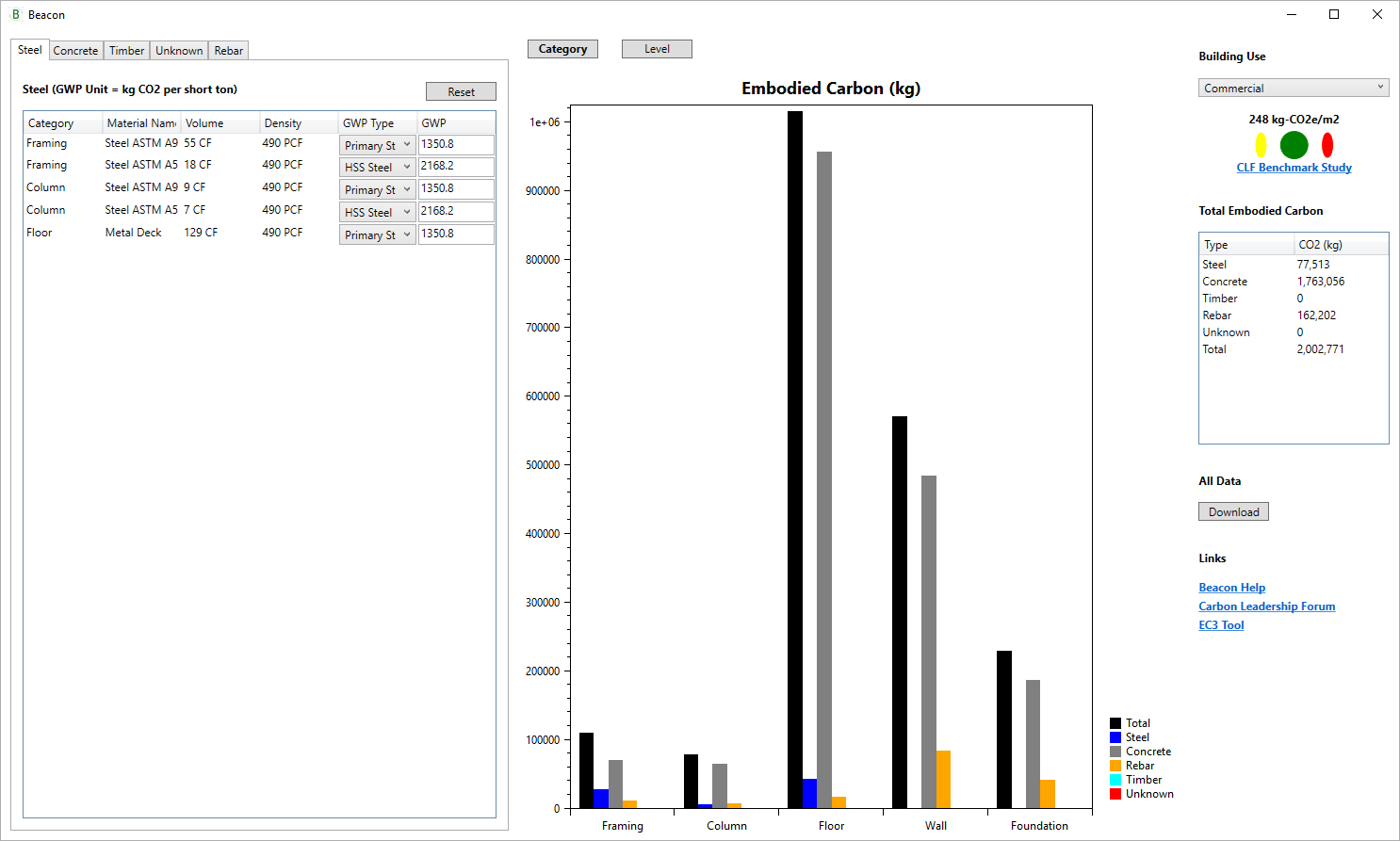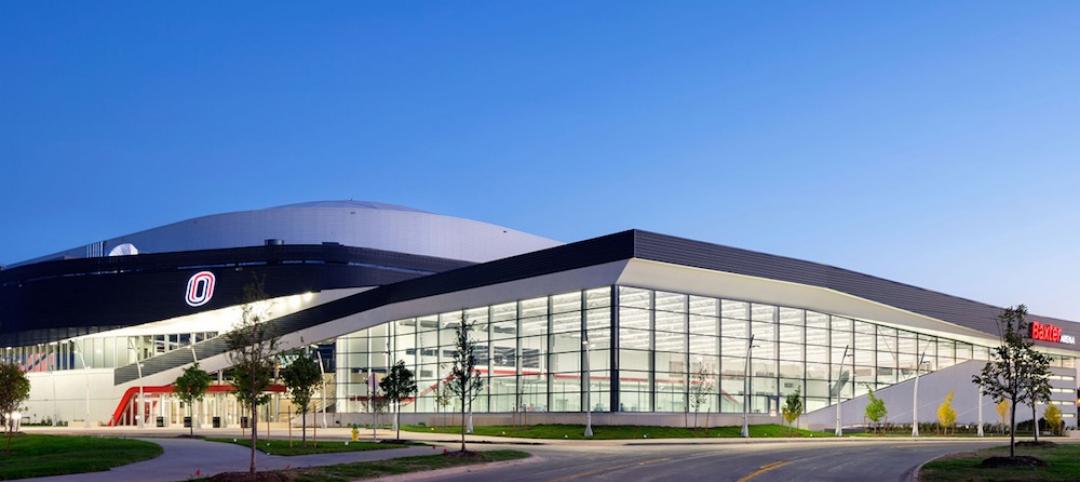Engineering giant Thornton Tomasetti has launched Beacon, an open-source embodied carbon measurement tool poised to change the way structural engineers understand and manage embodied carbon optimization. The tool gives users the ability to measure embodied carbon, allowing for more informed decisions throughout the design process.
Beacon is being introduced after an intensive, three-year research and development process led by Thornton Tomasetti’s CORE studio, a firm-wide virtual incubator focused on innovation through computational modeling and research.
The tool is an Autodesk Revit plugin that generates a comprehensive data visualization of a project’s embodied carbon. Beacon provides data in a manner similar to the engineer’s thought process, providing a clear visualization of a project’s embodied carbon quantities by material type, building element and floor levels, allowing engineers to know exactly where embodied carbon can be minimized for optimization.
It also grades the model’s embodied carbon levels against the Carbon Leadership Forum’s database of models by building type using a red, yellow, and green rating system.
embodied carbon reseach
Beacon’s launch follows Thornton Tomasetti’s November 2019 release of results from its multi-year, project-based embodied carbon measurement study. The study focused on identifying the type of structures, materials and components with the highest carbon emissions.
“We decided to make Beacon an open-source and easy-to-use tool, so it can be shared at a global scale,” said Robert Otani, Principal and Chief Technology Officer at Thornton Tomasetti. “We hope this unique and comprehensive tool will push the industry forward into developing innovative strategies that result in more sustainable and efficient structures.”
“The built environment is estimated to be responsible for about 40% of global greenhouse gas emissions when building materials are factored in,” said Amy Seif Hattan, Corporate Responsibility Officer at Thornton Tomasetti. “It is up to us to help effect change. Beacon will help structural engineers address embodied carbon in new construction. It will also be extremely valuable to measure progress toward the Carbon Leadership Forum’s Structural Engineers 2050 Challenge’s primary goal of zero carbon buildings by 2050.”
Hattan added that this challenge was recently endorsed by the Structural Engineering Institute Board of Governors, showing strong industry support for the initiative.
Beacon is available for download at: https://core-studio.gitbook.io/beacon.
Related Stories
BIM and Information Technology | May 20, 2016
AIA and Autodesk introduce new feature to automate 2030 Commitment reporting data
The new automated connection will allow the more than 350 AIA 2030 committed firms to report their project and portfolio performance to the DDx directly from Autodesk Insight 360.
AEC Tech | May 12, 2016
How graphics can assist with the progress of a campus plan
Decision-making at higher education institutions can be difficult, but SmithGroupJJR's Michael Bostic writes that graphics can help by visualizing data and simplifying complex decisions.
AEC Tech | May 10, 2016
Thornton Tomasetti launches new tech company
TTWiiN initially features six products and will add more via its own incubator.
AEC Tech | May 9, 2016
Is the nation’s grand tech boom really an innovation funk?
Despite popular belief, the country is not in a great age of technological and digital innovation, at least when compared to the last great innovation era (1870-1970).
Big Data | May 5, 2016
Demand for data integration technologies for buildings is expected to soar over the next decade
A Navigant Research report takes a deeper dive to examine where demand will be strongest by region and building type.
BIM and Information Technology | May 2, 2016
How HDR used computational design tools to create Omaha's UNO Baxter Arena
Three years after writing a white paper about designing an arena for the University of Nebraska Omaha, HDR's Matt Goldsberry says it's time to cherry-pick the best problem-solving workflows.
Virtual Reality | Apr 29, 2016
NBBJ to develop virtual reality productivity platform
The Seattle design firm has partnered with Visual Vocal, a startup VR company.
Drones | Apr 25, 2016
The Tremco SkyBEAM UAV is the first to be approved by the FAA for nighttime commercial operation
The SkyBEAM UAV is used for identifying energy leaks, rooftop damage, deteriorating façades, and safety issues without requiring scaffolding or cranes.
AEC Tech | Apr 15, 2016
Should architects learn to code?
Even if learning to code does not personally interest you, the growing demand for having these capabilities in an architectural business cannot be overlooked, writes computational design expert Nathan Miller.
Building Tech | Apr 12, 2016
Should we be worried about a tech slowdown?
Is the U.S. in an innovative funk, or is this just the calm before the storm?

















